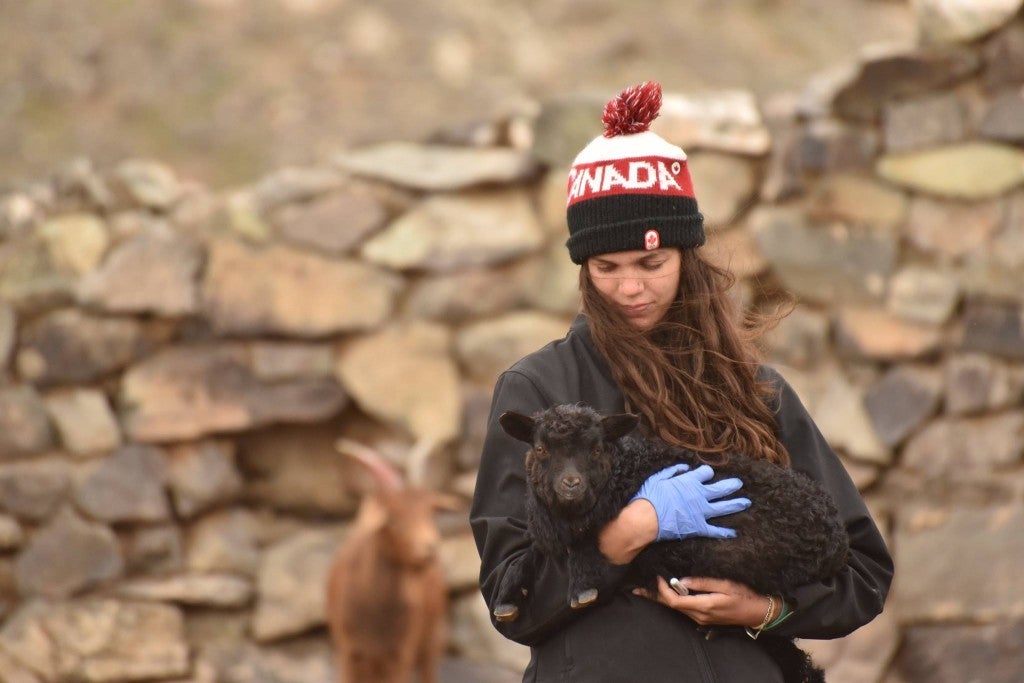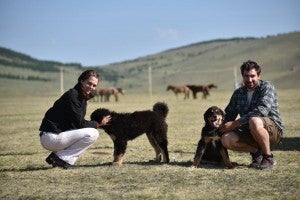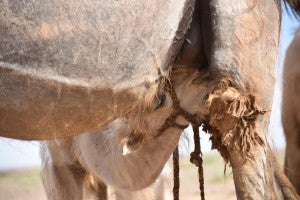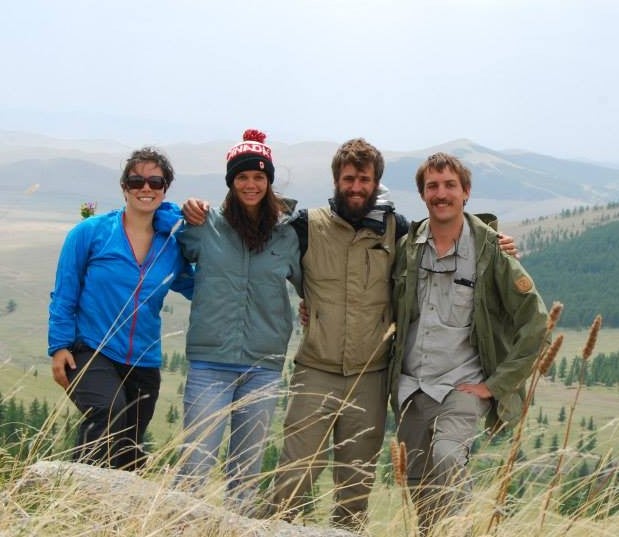Contributed by Samantha Lawton, Class of 2017
Sain baina uu (that is Hello in Mongolian)! During June and July of 2015 I had the fantastic opportunity to travel to Mongolia for five weeks in order to complete a STAR project (Students Training in Advanced Research). My project was assessing the prevalence and distribution of intestinal parasites in small ruminants and dogs. Mongolia was an excellent place to conduct this research because people, their livestock and their dogs interact closely and many people are reliant on animals for food and fiber. Therefore, intestinal parasites, and targeted strategies to reduce parasites, could have impacts on animal health, economic health and even human health in the case of some intestinal parasites, like Echinococcus, where humans can be infected if they consume parasite eggs shed in dog feces.
A friend/previous mentor connected me with this project when I approached her about opportunities to experience fieldwork. I wanted to gain fieldwork experience because I have always thought that field research was something I might like to do in my future but only had short experiences. This summer did confirm that I really do love international fieldwork and I want to incorporate it into my career.
Ever since I was little I have wanted to travel to Mongolia. I was a horse crazy, National Geographic reading child and when I learned about the nomadic herders of Mongolia that still used horses for travel I was hooked. The country did not disappoint. I loved seeing the horses running free across the steppe next to our jeep. Many of the herders still use horses for travel and herding their sheep, though some now use motorcycles! The herders were very welcoming when we did fieldwork inviting us into their gers, serving us hot milk tea and letting us sample their animals. It was a fantastic cultural experience. Additionally, I got to see some incredible wildlife from eagle chicks to Przewalski horses (which were my favorite zoo animal in grade 1!)
I traveled to Mongolia with my friend and fellow vet student Devin from UC Davis (you’ll read about his experience in another post), and we met up with students from Washington State and Duke University. In country we worked with a non-profit organization, the Mongolian Bankhar Dog Project in order to complete our fieldwork. The Mongolian Bankhar Dog Project is a great organization working to reduce predator-herder conflict by using livestock guardian dogs. The MBDP project already had connections with herders in three different areas in Mongolia where their dogs were working to protect sheep from wolves and snow leopards. They were kind enough to let four students work with them and their local partners in order to complete our sampling.
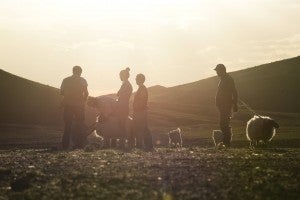 Overall we spent approximately three weeks collecting samples from the field and two weeks analyzing the samples in the lab. We had an incredible team to work with, made up of people of different disciplines. I loved working with this diverse group and want to incorporate more interdisciplinary work into my future.
Overall we spent approximately three weeks collecting samples from the field and two weeks analyzing the samples in the lab. We had an incredible team to work with, made up of people of different disciplines. I loved working with this diverse group and want to incorporate more interdisciplinary work into my future.
In addition to the fieldwork and lab work in country, we also happened to be in Ulaanbaatar during Nadaam—a national festival where the whole country comes together to participate and observe cultural shows, archery, horse racing and wrestling. We were lucky enough to have some days off over Nadaam so we also got to observe the festivities. It was a wonderful cultural experience.
This summer was a truly phenomenal experience; I made new friends, explored a new culture and gained research experience. I am so glad I had the opportunity to travel!

